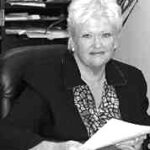M. Marlene Briggs, NMD
It has been interesting to experience the evolution of medicine in the past 30 years. Probably the wide interest in, and knowledge of, hormones has been a prime example of this evolution.
It may have been a resistant evolution to many of us as we female physicians usually draw more females than males into our patient population. At least that’s been my experience. In my early years, I missed men in my practice. It has been during the last 20 years that I began to invite spouses, fathers, uncles and grandfathers into the conference room to learn more about the women in their lives.
What a change in communication and education happened with male inclusion! Not only did men appreciate being included, they began to feel comfortable talking about themselves. There was lots of conversation about predictive and preventive healthcare; and for sure, male hormones were the elements of their own cases that they wanted to freely discuss.
- Bland PhD, D. Zava, PhD and the late J. Lee, MD, et al, became my teachers in the arena of hormones. It is my opinion that the physician who wishes to work in male/female hormone balancing needs a team approach from which to glean the state-of-the-art research and testing. From there, a working participatory relationship with a compounding pharmacist needs to be a constant element in individual patient prescription.
In my practice, most of my male patients are of andropausal age. We begin with the following theme of questioning. (Note that questions are asked more than one way to accommodate patient understanding.):
- Do you tire more easily? Do you have a noticeable lack of energy?
- Is it more difficult to work out and stay in shape? Is there a decrease in your strength? Are you plagued with poor endurance?
- Have you lost some zest for life? Are you depressed?
- Are your interests in sports participation decreased?
- Are you eating the same or less and putting on weight…especially around your midsection?
- Has your reaction time slowed?
- Are you sad and jumpy?
- Have you lost your mental quickness?
- Do you have the desire to, or actually do, fall asleep after dinner?
- Is the passion fading from your sexual desire…Are your erections less strong?”
In establishing a protocol, I begin with a clinical history, comprehensive metabolic blood profile with lipids, salivary profiles for the estrogens, progesterone, testosterone, DHEA, and morning cortisol. Mineral evaluation from hair helps to determine nutritional deficiencies, toxic conditions and absorption challenges. Some labs now offer blood spot profiles that include testosterone, sex hormone-binding globulin, free testosterone index, PSA, thyroid and growth hormone.
The following are bullet points are from the John R. Lee, MD from his monogram entitled Hormone Balance for Men.
- Utilize saliva testing. Until doctors understand the failure of serum testing, they will continue overdosing their patients.
- Progesterone inhibits 5-alpha-reductase, an enzyme that otherwise would convert testosterone into dihydrotestosterone (DHT) that is thought to cause hypertrophy.
- Optimal saliva progesterone levels should be 200 to 300 times that of estradiol or around 400 pg/ml (in a two-ounce jar or tube of cream containing 960 mg of progesterone…a bit less than 1/8 tsp of cream daily.)
- The ratio of saliva testosterone to estradiol should be about 200 to 300 to 1.
- Salivary testosterone levels should range from 200 to 300 pg/ml.
The use of bio-identical transdermally-delivered testosterone and/or progesterone cream when appropriate has proven a blessing to those men who seek help during the years of andropause. I find most gratifying to see the elderly male regain muscle strength. This benefit alone has increased not only general quality of life, it has aided the ability to physically care for self and dependent spouses…the only way to keep them in the home longer during end of life issues.
My proposition for those doctors who have adolescent male and female patients is to perform salivary profiles on this population, writing bio-identical script when appropriate, and following these young people through early and mid adulthood.
 Marlene Briggs, NMD is a graduate of both the National College of Chiropractic (the then Seattle branch) and the National College of Naturopathic Medicine. She is licensed and has practiced in Arizona for thirty years. The focus of her practice is directed toward, but not limited to, those who endure fibromyalgia /chronic fatigue syndrome, and both males and females seeking bio-identical hormonal balancing.
Marlene Briggs, NMD is a graduate of both the National College of Chiropractic (the then Seattle branch) and the National College of Naturopathic Medicine. She is licensed and has practiced in Arizona for thirty years. The focus of her practice is directed toward, but not limited to, those who endure fibromyalgia /chronic fatigue syndrome, and both males and females seeking bio-identical hormonal balancing.





